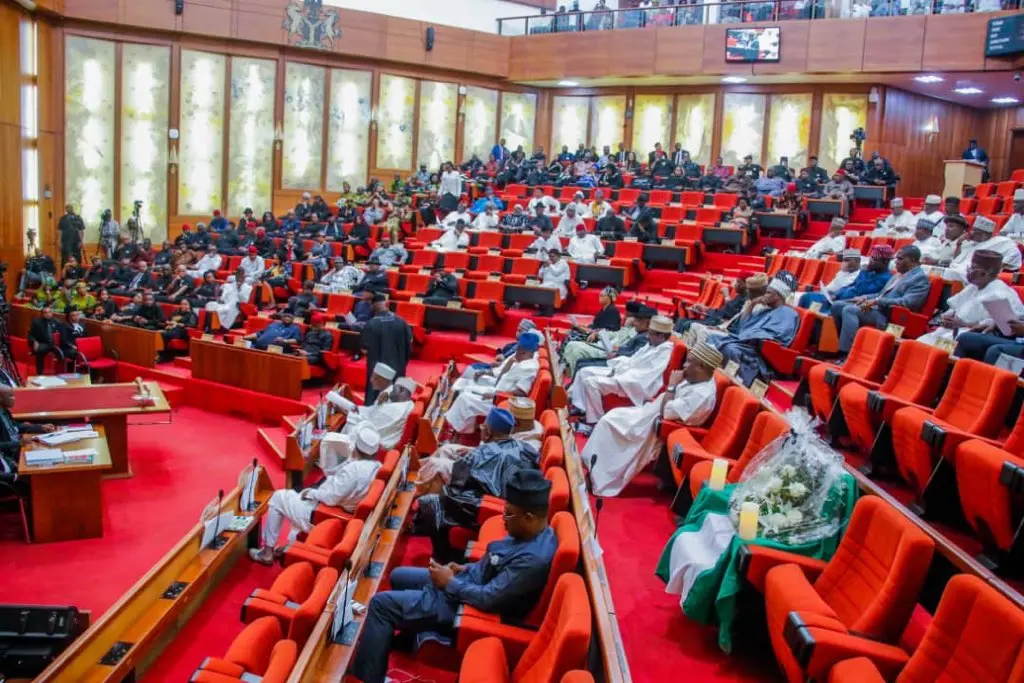The Nigerian Senate rejected a proposal to restrict the use of security funds for building universities and purchasing yachts, urging instead that these funds be dedicated to modern technological advancements to combat insurgency.
The proposal surfaced during discussions on a motion titled “Suicide Attacks In Gwoza, Borno State: The Urgency To Stem The Tide Of This Ugly Menace,” moved by Senator Ali Ndume.
Senator Ndume highlighted the devastating impact of a series of coordinated suicide bombings on June 29, 2024, in Gwoza, Borno State, which resulted in the deaths of 18 civilians and left many others injured.
Ndume emphasized the need for security agencies to adopt modern technology in their fight against insurgency and called for immediate government intervention to secure the region’s hotspots, including the Lake Chad Region, Sambisa Forest, and Mandara Mountains.
During the debate, Senator Adams Oshiomhole (APC, Edo North) criticized the diversion of military funds to non-essential projects. He argued that previous service chiefs had misallocated resources to build universities rather than investing in crucial security technologies.
Oshiomhole insisted that the Senate should ensure the proper allocation and oversight of military funds to enhance security operations effectively.
Supporting Oshiomhole’s stance, Senator Neda Imasuen (APC, Edo South) stressed the importance of directing military funds towards procurement of essential security materials rather than non-core projects.
Despite this, the Senate President, Godswill Akpabio, called for a voice vote on the additional prayer, which was met with overwhelming opposition from the lawmakers.
The Senate ultimately dropped the additional prayer but accepted the three primary prayers moved by Ndume. These included observing a minute of silence for the victims, urging the National Emergency Management Agency to provide relief materials, and directing the Federal Government to employ modern technology in the fight against insurgency.



